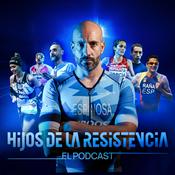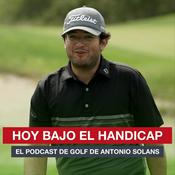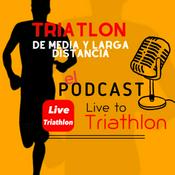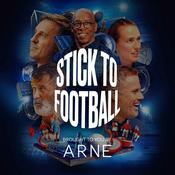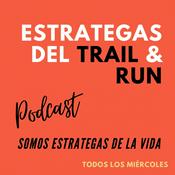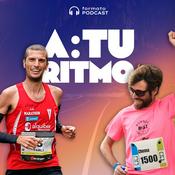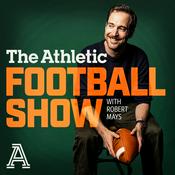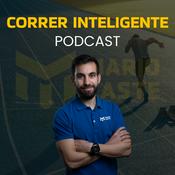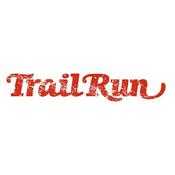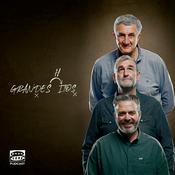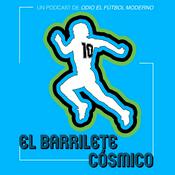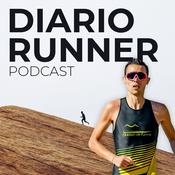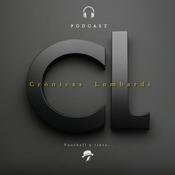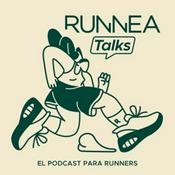46 episodios

Episode 46: Understanding Athlete Gut Health with Guest Dr. Ashley Shrader
02/1/2026 | 49 min
In this episode of ‘All Things Endurance Podcast,’ host, Rick Prince chats with Dr. Ashley Shrader, founder and owner of RISE Functional Medicine. Dr. Shrader is a board-certified Family Nurse Practitioner and Institute of Functional Medicine Certified Practitioner. Dr. Shrader and Rick discuss various aspects of gut health including physiology, systemic influence on the body, high carbohydrate intake, strategies to positively impact gut health… and more!If you’ve ever been interested in learning more about gut health, consider this a must listen!Below are the specific areas that Rick and Dr. Shrader chat about during this episode: 1. Could you please tell our listeners a little bit more about yourself?2. We often hear that gut health is important, but in my experience, it is still not often viewed as important as other areas of health. Why do you think that is? Is it a lack of information or something else?3. Endurance athletics and gut issues seem to go hand in hand – especially for ultra distances. Could you elaborate more on why this is the case?4. Often gut issues tend to be thought of solely with respect to GI issues, but it can impact a lot of other areas of performance as well such as recovery and fatigue. Could you discuss some of those areas?5. As you work with a lot of endurance athletes, do you find that there are common root causes of gut issues amongst endurance athletes?6. There is currently a super high carb trend in endurance athletics. What are your thoughts on this from both health and performance standpoints and regarding performance, how would an athlete train their gut to handle high carb intake?7. What are some good general and practical strategies that endurance athletes can adopt to enhance their health and performance?8. If an athlete is experiencing issues that they think might be related to their gut health, what step(s) should they take?9. Could you please tell our listeners a little bit more about your business, RISE Functional Medicine?To learn more about Dr. Ashely Shrader and RISE Functional Medicine, please visit:www.risefxmed.com

Episode 45: Popularity and Programming of Strength Training in Endurance Athletes with Guest Chris Lee
12/12/2025 | 42 min
In this episode of ‘All Things Endurance Podcast,’ host, Rick Prince chats with Chris Lee, founder and owner of Kinesis. Chris is a strength and conditioning specialist with a focus on working with endurance athletes, both amateur and professional. Rick and Chris discuss the rise in popularity of strength training amongst endurance athletes, as well as the key benefits of strength training, how to set up a home gym and how to integrate strength training into a cardiovascular-based program. Below are the specific areas that Rick and Chris chat about during this episode:1. Could you tell our listeners a little bit more about yourself?2. In the past, strength training was only really done in the off-season, if at all. Why do you think there is renewed focus on strength training for endurance athletes?3. Do you think the recent focus on longevity plays a role into the interest in strength training?4. Specific needs aside, if an athlete could only do 5 exercises, which ones would you suggest and why?5. Most of us know what the main benefits of strength training are. However, what are some other benefits that aren’t as common knowledge (ex: durability, stiffening tendons, etc…)?6. A lot of endurance athletes are not sure how to successfully integrate strength training into a cardiovascular program without it negatively impacting their cardio-based training sessions. Any advice in this area?7. What equipment would you recommend to an athlete looking to build their own gym?8. While there is increased strength training adoption amongst endurance athletes, a lot of endurance athletes are still not doing strength training. Why do think this is?9. Could you tell our listeners a bit more about Kinesis?To learn more about Chris Lee and Kinesis (physical location and the Kinesis app), please visit:www.kinesisintegrated.com

Episode 44: Heart Rate Variability (HRV) - A Deep Dive with Guest Dr. Marco Altini
01/12/2025 | 42 min
In this episode of ‘All Things Endurance Podcast,’ host, Rick Prince chats with Dr. Marco Altini, founder of HRV4Training. Dr. Altini is a coach and data scientist who specializes in heart rate variability (HRV). HRV is a metric that is useful to endurance athletes as it can by proxy, assess an individual’s fatigue and stress. In this podcast, Rick and Dr. Altini take a deep dive into what exactly HRV is, its strengths and weaknesses in relation to the application for athletes, and how to interpret HRV data.Below are the specific areas that Rick and Dr. Altini chat about during this episode:1. Could you please tell our listeners a bit more about yourself?2. What exactly is HRV and why is it an important metric to assess and track?3. Do wearables accurately track HRV? And what is the gold standard for assessing HRV?4. Is HRV affected by age or gender?5. Is HRV highly individualistic? And is there a median HRV that is considered normal for different ages? 6. Should an athlete change their training based on their HRV? And moreover, is a low HRV – especially over several consecutive days a cause for alarm?7. What are most common things that affect ones HRV?8. Do you recommend correlating HRV with other data points and if so, for what purpose?9. What limitations are there in assessing HRV, and are there any areas of HRV research that are not conclusive or more research is still needed?10. Tell us about your app, HRV4TrainingTo learn more about Dr. Altini and his app, please visit:www.marcoaltini.comwww.HRV4Training.com

Episode 43: The Science Behind Super Shoes with Guest Laura Healey of Puma
14/11/2025 | 33 min
In this episode of ‘All Things Endurance Podcast,’ host, Rick Prince chats with Laura Healey – the senior manager of Research & Sport Science at Puma. In this podcast, Laura discusses the science and make up of super shoes, as well considerations regarding their use and application. Below are the specific areas that Rick and Laura chat about during this episode: 1. Could you please tell our listeners a little bit more about yourself?2. Is there an exact definition of a ‘super shoe,’ or more specifically, are there any aspects of a shoe that are needed to make it a ‘super shoe?’3. First there was the focus on barefoot/minimal footwear, which is often attributed to the ‘Born to Run’ book. Now the over-cushioned ‘super shoe’ seems to have largely replace the minimalist focus. Could you discuss this transition from one extreme to another?4. Is there one aspect of super shoes (i.e., foam, carbon plate, etc…) that is responsible for the increase in performance, or is it largely an equal combination of all aspects?5. Due to the height, are over-cushioned shoes less stable when running around tight turns?6. Initially, super shoes were viewed as only racing shoes. However, has that changed to the point where a lot of people also train in super shoes?7. Without giving away any proprietary information, what are some of the key considerations that go into making a super shoe?8. Price aside, are there any reasons why someone might not want to purchase super shoes?9. Is there any research out there that discusses if super shoes increase, decrease or have no effect on injury rates? Or is it still way too early to have statistically significant data on in this area?10. Aside from the usual fit recommendations, are there any other considerations or guidelines that a runner should be aware of when trying on super shoes? To learn more about Puma and to check out their shoes, please visit: www.puma.com

Episode 42: Strategies to Start and Grow Your Coaching Business with Guest Nicole Dobransky
31/10/2025 | 58 min
In this episode of ‘All Things Endurance Podcast,’ host Rick Prince chats with Nicole Dobransky. Nicole is the founder of Runner Rising, a business focused on helping individuals start and scale their endurance sports coaching practices. Below are the areas that Rick and Nicole chat about during this episode: 1. Could you please tell our listeners a little bit more about you and why you started Runner Rising?2. What are some the biggest mistakes that you see new (and seasoned) endurance sports coaches make when it comes to marketing their coaching businesses?3. ‘Content is King’ is often a phrase used in regard to online marketing. Does this hold true for endurance sports coaches and if so, what are some key considerations to be aware of when creating content across various mediums?4. What role do you see AI playing in helping endurance sports coaches acquire athletes to work with?5. If a coach is brand new, what are the first steps that they should take to build their business?6. If you had to pick the top 3 most impactful things that a coach can do to get athletes, what would they be?7. A lot of coaches struggle with wearing all of the hats in their coaching business. What advice would you give to a coach that is struggling to grow their business because they are too busy managing all of the aspects of running it?8. Could you tell us a little bit about how Runner Rising helps coaches find new athletes to coach?9. Any tips for a coach that is looking to take their coaching side-gig to a full-time endeavor with respect to increasing their athlete roster?To learn more about Nicole and Runner Rising, please visit: https://runnerrising.com/
Más podcasts de Deportes
Podcasts a la moda de Deportes
Acerca de All Things Endurance
Escucha All Things Endurance, Tiempo de Juego y muchos más podcasts de todo el mundo con la aplicación de radio.es
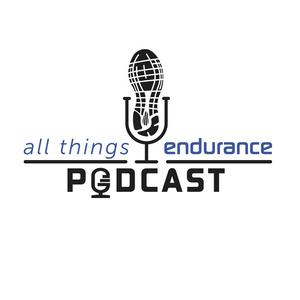
Descarga la app gratuita: radio.es
- Añadir radios y podcasts a favoritos
- Transmisión por Wi-Fi y Bluetooth
- Carplay & Android Auto compatible
- Muchas otras funciones de la app
Descarga la app gratuita: radio.es
- Añadir radios y podcasts a favoritos
- Transmisión por Wi-Fi y Bluetooth
- Carplay & Android Auto compatible
- Muchas otras funciones de la app


All Things Endurance
Descarga la app,
Escucha.







